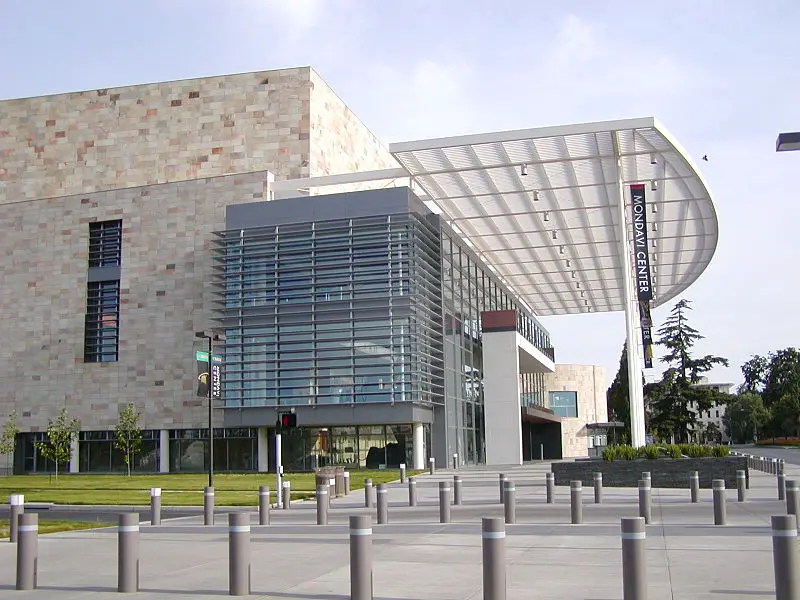Upon logging into their email accounts on Monday, some students at the University of California, Davis received a disconcerting travel advisory from their institution.
In an email sent by Gary Leonard, the university’s director of liability and property programs, UC Davis issued a China travel warning to recipients, suggesting that they refrain from using messaging apps like WhatsApp and WeChat, and from making “unfavorable political statements or postings on social media” while in the country.
“While the use of What’sApp, WeChat and like messaging apps are legal in China, we have seen in the latest espionage charge of a US citizen in Russia where the use of What’sApp has been cited in his espionage changes,” the email reads. “Our concern here is the possibility China could use this condition similarly against western travelers to levy charges or as an excuse to deny departure.”
The email was forwarded by ECE department and it was sent from Office of the President in UC Davis. pic.twitter.com/3oTk9mIVyg
— 疯狂科学鱼博士 (@DrF1sh) January 8, 2019
Not all UC Davis students received the email. In particular, it was forwarded to the Electrical and Computer Engineering Department, according to the South China Morning Post.
International students Chaodan Luo and her roomate, who are from China and currently studying at UC Davis, confirmed to the South China Morning Post that they both received the email. Two electrical and computer engineering graduate students affirmed confirmation of the email as well.
The email follows the U.S. State Department’s decision to update its travel advisory to China to level two, encouraging U.S. citizens to exercise increased caution in the country due to “arbitrary enforcement of local laws as well as special restrictions on dual U.S.-Chinese nationals.”
The updated travel advisory also comes in the wake of the detention of three Canadian citizens, Sarah McIver, Michael Kovrig, and Michael Spavor last month by Chinese officials.
Also included in Leonard’s message were recommendations from WorldAware, an integrated risk management company, for those traveling in China, the screenshots show. Among these, travelers were advised not to sign anything, not to give up their passports, to be cautious of interrogation, and to “avoid inadvertently providing any information that may be distorted to deny departure or facilitate an arrest.”
A variety of incidents have caused tensions to run high between the U.S. and China over recent months, straining the already damaged diplomatic relationship the two countries currently possess.
Since June, U.S. citizen siblings Victor and Cynthia Liu and their mother Sandra Han, have been prevented from leaving China as a means of pressuring their father, Liu Changming, a former Chinese bank executive, to return to the country and face financial crimes.
In the midst of the ongoing trade war and the December arrest of Huawei Technologies executive Sabrina Meng Wanzhou, the U.S. has also recently detained several Chinese citizens, including Chinese intelligence official Yanjun Xu, on the basis of espionage charges.
Multiple U.S. colleges and universities have cut ties with China’s Confucius Institute over the past few months as well in response to concerns from U.S. legislators that China uses the institute to influence American higher education.
As an organization affiliated with the Ministry of Education of the People’s Republic of China, the Institute’s mission lies in “strengthening educational and cultural exchanges and fostering people to people interactions between China and the United States,” according to its website.
However, as consensus grows among members of congress that Confucius is really an effort by China to expand its political influence outside of its borders, and professors continue to complain that “its programs were Chinese propaganda wrapped in culture and language education,” schools including the University of North Florida, Pennsylvania State University and the University of Chicago are the latest to disaffiliate themselves from the Institute.
While many of the pieces of advice included in the UC Davis email are “simply common sense” measures to follow, Ryan Mitchell, an expert in Chinese and international law at the Chinese University of Hong Kong told the South China Morning Post, Mitchell said he believes the chances that large numbers of students will begin being detained remains low.
“But again, there is no sign that Chinese authorities will initiate mass detentions of US citizens on these or other grounds,” he said.



